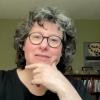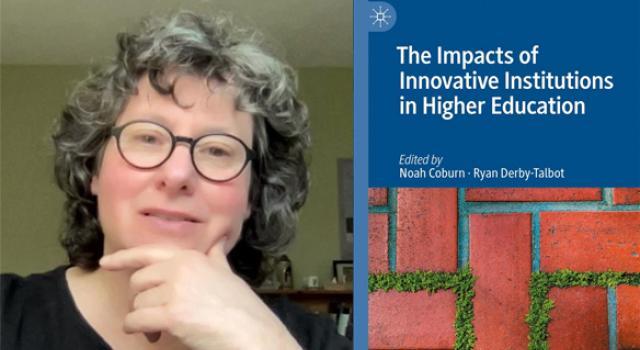
Laura Wenk

Laura Wenk, director of assessment and professor of cognition and education and dean of curriculum and assessment, is a founding faculty member of the Childhood, Youth, and Education Program at Hampshire College supporting college students in examining the relationships among cognition, development, and instruction.
She is also the curriculum director for the Collaboration for Excellence in Science Education at Hampshire College, an outreach program that assists high school faculty in teaching science conceptually. Professor Wenk taught high school biology and physical science for six years before pursuing her doctorate in curriculum studies. She teaches courses in cognition and instruction, curriculum and instruction, and educational research. Her current research interests include the connections among pedagogy, personal epistemology, and higher-order thinking.
Recent and Upcoming Courses
-
We explore the intersection of sustainable agriculture, natural fibers, and community-building through the lens of wool. This supported project course considers the concept of a fibershed-examining how we can create a regional wool economy supporting land and people. Through a combination of readings, field trips, and creative collaboration, students investigate the full lifecycle of wool, from the soil that nourishes sheep to finished fiber products that can return to the soil. Students engage in real-world projects of their own design that foster the development of a sustainable wool economy through wool crafts (we have access to spinning wheels, looms, knitting and crocheting tools), connections to farmers or work with other community partners. Participants will develop project skills and practical skills in fiber production while contributing to the future of regenerative textile systems. There will be a series of Saturday field trips (dates TBD) and a final campus presentation. Instructor permission process https://forms.gle/pzctRAjhvZwD416Y8 Keywords:sustainability, fiber arts
-
Where does good curriculum design come from? What is the relationship between curriculum and pedagogy? How do good educators promote deep learning despite the current political climate that emphasizes content mastery and efficient instruction? In this course, you will learn research-based curriculum design practices, how to focus on conceptual understanding and the development of higher order thinking (e.g. critical thinking, integrative thinking, innovative thinking) in a number of domains and across multiple contexts. Each student develops a curriculum unit on a topic of their choice. In addition, students get some practice teaching their materials to one another. This course is designed for Division II and III students who are interested in teaching in formal or non-formal settings or who are developing curriculum as part of their independent work. Prerequisite: prior coursework in education or equivalent experience in educational settings. Keywords:Education, Curriculum Design
-
As a result of cognitive psychology and education research, we have an excellent understanding of human learning, its social and cultural nature, and the varied approaches to teaching, testing and assessment that lead to success. There is strong evidence that implementing these ideas would improve learning for all, including those who have been under-resourced. In this seminar we will work to understand the findings by reading, discussing, and evaluating a selection of theoretical works and primary research from cognitive psychology and examine their practical applications to education. We'll use theory to reflect on our own educational experiences and the experiences of others. We will critique classroom teaching and learn how to change classroom environments so that they are inclusive, with high levels of achievement for all. Students will do a final project on a question of their own related to the course.


